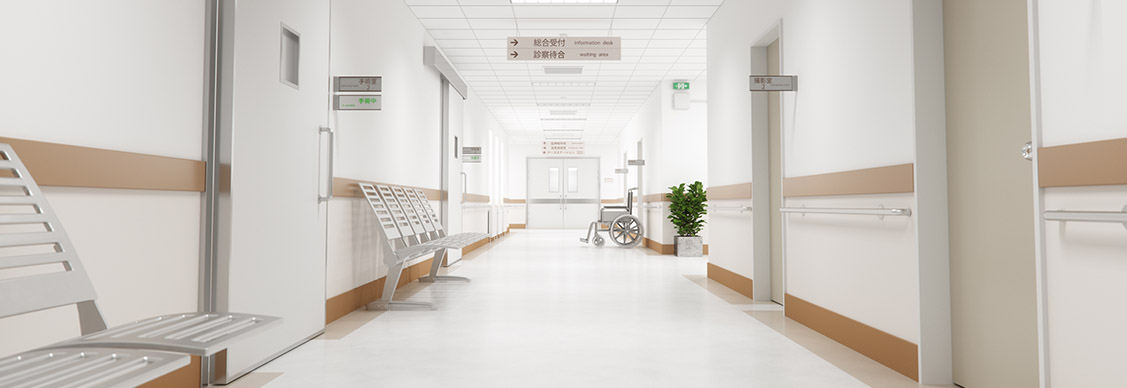Transforming the GCC healthcare sector
Healthcare Infrastructure Insight by Sandeep Sinha and Saranya Balijepalli, JLL Healthcare Consulting, MEA
The global COVID pandemic has placed enormous pressure on the healthcare sector around the world over the past few years. The combination of four interrelated factors has resulted in the GCC healthcare sector experiencing a more rapid and extensive transformation than other regions.
Maturing insurance sector. Mandatory health insurance regulations have driven the growth of the healthcare sector across the region, with major implications on how healthcare is funded and delivered. The Council of Cooperative Health Insurance (CCHI) in KSA aims to cover ~50% of the population with an insurance scheme by 2030, acting as a major driver of the healthcare sector going forward. Qatar introduced a new mandatory insurance law in 2022, while Bahrain and Oman are also working towards universal health insurance.
Shift towards public-private collaboration. In line with their desire to rebalance the relative roles of the public-private sector, governments across the region have shifted their focus from building and delivering healthcare themselves, to attracting more private investment to do this on their behalf. The subsequent easing of regulation on foreign investment in healthcare has resulted in more participation by both private investor and foreign operators.
This rebalancing has resulted in an increased number of Public Private Partnership initiatives (PPPs) across the GCC. PPPs meet the objectives of both governments (to spend less public money delivering healthcare) and private investors (seeking more opportunities to invest in alternative real estate sectors). Not all the proposed PPP projects have progressed to delivery, highlighting the need for further deregulation to provide greater certainty to potential investors.
One of the most successful PPPs in the healthcare sector has resulted in Pure Health assuming responsibility for the operation and management of all MOHPA hospital laboratories across the UAE.
Focus on Specialised Care. Patients, investors, providers, and regulators are all preferring specialised services, provided through centres of excellence in specific tertiary care specialties. A range of smaller formats are also emerging rapidly, these include short-stay surgical centers, urgent care facilities, sports medicine facilities, medical wellness facilities, long-term care, and mental health facilities. The growth of these new formats is being driven by a growing patient preference for care outside of traditional hospital settings.
Response to the COVID pandemic. The decline in medical tourism resulting from COVID travel restrictions and the desire to build stronger local supply chains have had important implications for the GCC healthcare sector. The most obvious of these include attempts to reduce outbound medical tourism, more greenfield investment in the region, and a marked growth in the manufacturing of pharmaceuticals and other medical supplies within the GCC. We have also observed business consolidation across the region as large healthcare groups are expanding through acquisitions. The recent investment by GII in Al Meswak Dental chain testifies to this trend as do multiple acquisitions by ADQ and greenfield expansion by major private healthcare groups across the GCC.
In addition to the four major trends identified above, the transformation of the GCC healthcare sector has also been shaped by global trends in respect of digital technology and environmental sustainability. One of the most significant technological trends has been the rapid increase in the application of Artificial Intelligence (Ai) in the healthcare sector. This has important implications for the amount of real estate required as well as its location and design, with technology allowing more basic health care to be delivered at home or from local clinics. At the other extreme, higher-level medical and surgical procedures are becoming concentrated in a limited number of specialized hubs across the region.
Dubai, Abu Dhabi, and Riyadh are emerging as the most mature healthcare markets in the GCC, with the delivery of more specialized and higher-order facilities. Elsewhere, smaller cities are experiencing a growth of lower-order clinics and medical centers to service the day-to-day needs of the local population. The development of mega projects across the region is also creating opportunities for more customized and targeted healthcare formats.
With healthcare infrastructure comprising the backbone of the healthcare ecosystem, it is unsurprising that the transformation of the healthcare sector has resulted in shifts in how the associated real estate is delivered, financed, and utilized.
JLL’s healthcare consulting business provides a good reflection of the maturity of the sector. In the early years, our healthcare consulting team was heavily involved in business plans and feasibility studies of new healthcare projects either independent or part of large development which is progressing well. Lately, our team has advised on prop co /op co-structuring, operator search, needs assessment, and technical and commercial due diligences of various investments. Recent such mandates included GII Investment’s purchase of the Al Meswak dental chain and the acquisition of a Rehab facility by a leading healthcare player.
While the GCC healthcare sector has clearly progressed up the value chain over the past five years, this transformation is far from complete. The healthcare ecosystem will continue to be impacted by long-term structural changes while responding to other as-yet-unknown shocks. The COVID pandemic may be receding, but it has indelibly changed the nature of the healthcare ecosystem. The most successful healthcare infrastructure projects over the next five years will be those that best balance the known and the as-yet-unknown.
